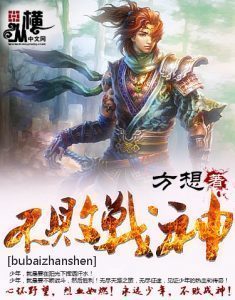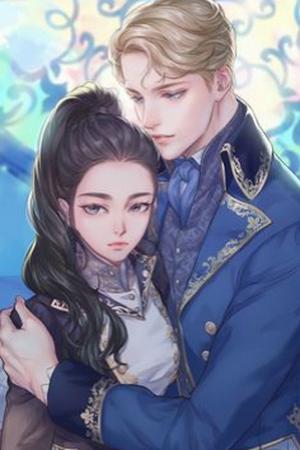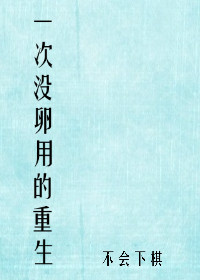Novel Name : The World Online
The World Online Chapter 1202 Downgraded to Commoner Status
Chapter 1202 – Downgraded to Commoner Status
The destruction of Great Qing symbolized a temporary end to the battle of the mid plains.
In less than two months, while protecting Great Jin, Great Xia managed to take down Great Han and Great Qing, becoming the biggest victor in this huge war.
During this period of time, after successive battles, the Mongol army totally wiped out the Turkish Khanate cavalry, smoothly occupying Turkish Khanate. Through this battle, the Mongol empire expanded their territory by half and became a super grassland dynasty that stretched from east to west.
In terms of China region land size, the Mongol empire was comparable to Great Xia.
Along with the weakening of Great Zhou, if it were not for six country alliance, in terms of individual size, Mongol empire would have already replaced Great Zhou as the biggest opponent to Great Xia's unification.
The two of them were destined to have a battle.
...
8th month, 21st day, Ouyang Shuo arrived in Jingdu City.
Although Feng Qiuhuang had officially requested to merge into Great Xia after Great Zhou troops withdrew from Great Jin, Ouyang Shuo was not in a rush to accept them.
First, the war had just ended, and Great Jin had barely managed to defend their land. Their morale was soaring, and it was a time where the entire dynasty was bonded together. If she decided to announce the merger with Great Xia at such a time, the civilians might not accept it, and it would cause much chaos.
Secondly, Great Jin was evidently riddled with holes. The Imperial Court was being torn apart, and Feng Qiuhuang was undergoing a huge restructuring and cleansing. If she merged with Great Xia at such a time, all her efforts would go to waste.
Ouyang Shuo wanted to borrow the hand of Feng Qiuhuang to purify Great Jin before taking it over.
Making her take the blame might seem really fake, but standing on the side of Great Xia, this was the most beneficial method, and Feng Qiuhuang would be able to understand it.
Furthermore, with her pride, she would not want to hand over a problematic Great Jin to Ouyang Shuo.
The matter was settled just like that.
Once Feng Qiuhuang completed her mission and merged Great Jin into Great Xia, Great Xia could appear as the savior and calm down the repercussions due to the cleansing while buying over the hearts of the people.
This could to a large extent protect a perfect Great Jin. After all, Ouyang Shuo did not hope to take over a hot mess.
To Feng Qiuhuang, Great Jin was like her dowry, and the good or bad of it would affect how high she would be able to climb up in Great Xia.
Compared to Bai Hua, Feng Qiuhuang was a latecomer.
Ouyang Shuo had high hopes for Feng Qiuhuang. Naturally, he did not hope for there to be hot debates right after she joined the Great Xia system.
Jingdu City, city west courtyard.
After arriving at Jingdu City, Ouyang Shuo did not meet the Great Qing royal family members, nor did he meet the Great Qing officials in a high profile. Instead, he cooped up in a clean courtyard to deal with post war matters in a low-profile.
Staying in the room, Ouyang Shuo could still hear the clamor from the streets, and the sounds of fireworks were incessant. The people of Jingdu were happily celebrating, celebrating Great Xia reclaiming Jingdu City.
The hatred between Manchu and the Han people was something that could never be wiped away.
No matter how low-profile Ouyang Shuo was, his appearance still caused many ripples and waves in the pool that was Jingdu. Even without showing himself, his name alone struck fear into this old city.
The noisy Jingdu City pretty much became silent.
There was a good sentence, 'When one's name was big, others could use it to protect themselves. When the shadow of a tree is big, it would provide shade and cover for others." Ouyang Shuo had reached such a realm where just his name he could settle things that others could not no matter how hard they tried.
Just like this time.
Although Ouyang Shuo did not reveal his face and just stayed in the courtyard, as a result of his presence, the officials that Great Xia sent to takeover Jingdu felt this difficult task become much easier.
The resistance that they had previously faced instantly disappeared.
The Great Xia Imperial Court had already decided to merge Jingdu Prefecture into Beijiang Province and move the Beijiang Governor-General House to Jingdu City. The future Jingdu City would be the central city of the dynasty in the north.
Toward such a strategic city, the Imperial Court naturally had high hopes and would focus on it. Overall, it was no less important than accepting a province of land.
Jingdu City also had a point that was different from other places - the officials were mostly Manchu people.
This was naturally unacceptable.
The Imperial Court had already decided to remove all the grade 5 and above officials here. Apart from leaving a few who had good comments, the remaining were downgraded to commoners or sent to other provinces.
Many resisted this change. After all, they were smashing the rice bowl of people. If it were not for Ouyang Shuo personally taking charge at Jingdu, even with the prestige of Great Xia today, things would get out of hand.
Apart from the officials in the city, what was more important was how to settle the Qing Dynasty royal family, especially Kangxi Emperor.
Toward this, the Imperial Court had two views.
The first group felt that they should follow the way they settled down the Great Han royal family, giving him the title of Qing Prince and restricting him to his prince palace to calm down the people.
However, there were some people who were worried that Kangxi could not be compared to Liu Fuling and had undoubted prestige. Even if one restricted his movements, he would find a way to work in the dark.
Rather than that, why not kill him and solve everything?
Such a method was similarly opposed.
First, killing an emperor that had already surrendered would negatively affect the magnanimity of the dynasty. Secondly, if this precedence was opened, it would only cause other dynasties to fight to the death. They would rather die than surrender.
The two sides debated with one another, and in the end, Ouyang Shuo needed to personally make the decision.
Ouyang Shuo contemplated the matter and decided that giving him a title was definitely impossible. He decided to choose the middle ground, downgrading all the Qing royal family members to commoners. They would move to Nanjiang.
The Qing and Han royal families were treated differently for a reason.
First, the former Han officials had basically gained the trust of Great Xia, while the Great Qing officials were cleaned out. As such, there was less resistance to them downgrading the Qing royal family.
Secondly, Tian Wenjing, Zuo Zongtang, and the other Qing Dynasty officials working in Great Xia were all Han Chinese and did not have a deep relationship with the Qing dynasty. Ouyang Shuo naturally did not need to consider much of their feelings.
Thirdly, Hanwu Emperor had an extremely high level of prestige amongst the entire Han Chinse civilization. It did not affect only the Zhongyuan Province but the entire China as well.
Hence, due to all these considerations, Great Xia had to take care of the descendants of Hanwu Emperor.
In comparison, Kangxi Emperor had a much weaker influence. Like now in Jingdu City, there were many who applauded his defeat.
Hence, even if he was downgraded to commoner, apart from the Manchu people, not many people would be unhappy about it.
Of course, Ouyang Shuo did not go too far, and he gave Kangxi Emperor's fourth son Yongzheng the title of 2nd class Earl. It could be considered that they had given the Qing royal family face.
Only then could they answer to the surrendered Qing army troops.
In this attack on Great Qing, they had captured 320 thousand Qing troops. As for how to deal with them, Ouyang Shuo was not in a rush to conclude and only let the Beijiang Legion corps take care of them at the outskirts of the city.
As for military reorganization, once it was started, everything would be affected.
Ouyang Shuo was prepared to wait till Great Jin merged into Great Xia before combining with the Great Jin army. Along with the captured Han troops from before, they would have a systematic military reorganization and not just knock it one side at a time.
Furthermore, this battle of the mid plains was far from over.
Just as Ouyang Shuo was taking charge of Jingdu City, Han Xin had led the Leopard Legion Corps to return to Zhongyuan Province. In a short amount of time, be it Qin, Tang, or Great Zhou, they would not dare to eye Great Jin.
The Leopard Legion Corps naturally did not need to move in Great Jin.
Zhongyuan Province had been taken down not long ago and needed an army to take charge.
Once the defensive duties were handed over to the Leopard Legion Corps, the 5th legion of the City Protection Legion Corps that was housed in Luoyang needed to return to Shanhai City.
Similarly, after handing over the war prisoners to the Beijiang legion corps, the Guards Legion Corps would return to Shanhai City.
Of the troops that attacked Great Qing, apart from the Bear Legion Corps led by Li Jing that were temporarily in Jingdu, the three legions of the City Protection Legion, the three legions of the Eagle Legion Corps, and the 1st legion of Yingzhou formation all returned to their respective camps.
Looking at the situation, Great Xia was not planning to wipe out Great Zhou in one fell swoop.
It was not that they did not want to, but they could not.
After Great Qing was destroyed, the remaining five countries in the alliance would be closely knit together.
The armies of the five countries added together exceeded three million. If they all acted at once and things went wrong, Great Xia might be burned by the flames of war.
Ouyang Shuo's strategy was to nibble at them bit by bit.
Of course, to quicken up the speed, Ouyang Shuo did not mind using trump card after trump card.
The place where war exploded was the southeast region.
On the 8th month, 22nd day, the 2nd day that Ouyang Shuo was in Jingdu, southeast warzone deputy commander Sun Bin led the Tiger Legion Corps and Xiangjiang legion corps, a total of 600 thousand troops, to enter Great Zhou's Jiangnan Province.
The flames of war that had just died down were reignited once more.
The destruction of Great Qing symbolized a temporary end to the battle of the mid plains.
In less than two months, while protecting Great Jin, Great Xia managed to take down Great Han and Great Qing, becoming the biggest victor in this huge war.
During this period of time, after successive battles, the Mongol army totally wiped out the Turkish Khanate cavalry, smoothly occupying Turkish Khanate. Through this battle, the Mongol empire expanded their territory by half and became a super grassland dynasty that stretched from east to west.
In terms of China region land size, the Mongol empire was comparable to Great Xia.
Along with the weakening of Great Zhou, if it were not for six country alliance, in terms of individual size, Mongol empire would have already replaced Great Zhou as the biggest opponent to Great Xia's unification.
The two of them were destined to have a battle.
...
8th month, 21st day, Ouyang Shuo arrived in Jingdu City.
Although Feng Qiuhuang had officially requested to merge into Great Xia after Great Zhou troops withdrew from Great Jin, Ouyang Shuo was not in a rush to accept them.
First, the war had just ended, and Great Jin had barely managed to defend their land. Their morale was soaring, and it was a time where the entire dynasty was bonded together. If she decided to announce the merger with Great Xia at such a time, the civilians might not accept it, and it would cause much chaos.
Secondly, Great Jin was evidently riddled with holes. The Imperial Court was being torn apart, and Feng Qiuhuang was undergoing a huge restructuring and cleansing. If she merged with Great Xia at such a time, all her efforts would go to waste.
Ouyang Shuo wanted to borrow the hand of Feng Qiuhuang to purify Great Jin before taking it over.
Making her take the blame might seem really fake, but standing on the side of Great Xia, this was the most beneficial method, and Feng Qiuhuang would be able to understand it.
Furthermore, with her pride, she would not want to hand over a problematic Great Jin to Ouyang Shuo.
The matter was settled just like that.
Once Feng Qiuhuang completed her mission and merged Great Jin into Great Xia, Great Xia could appear as the savior and calm down the repercussions due to the cleansing while buying over the hearts of the people.
This could to a large extent protect a perfect Great Jin. After all, Ouyang Shuo did not hope to take over a hot mess.
To Feng Qiuhuang, Great Jin was like her dowry, and the good or bad of it would affect how high she would be able to climb up in Great Xia.
Compared to Bai Hua, Feng Qiuhuang was a latecomer.
Ouyang Shuo had high hopes for Feng Qiuhuang. Naturally, he did not hope for there to be hot debates right after she joined the Great Xia system.
Jingdu City, city west courtyard.
After arriving at Jingdu City, Ouyang Shuo did not meet the Great Qing royal family members, nor did he meet the Great Qing officials in a high profile. Instead, he cooped up in a clean courtyard to deal with post war matters in a low-profile.
Staying in the room, Ouyang Shuo could still hear the clamor from the streets, and the sounds of fireworks were incessant. The people of Jingdu were happily celebrating, celebrating Great Xia reclaiming Jingdu City.
The hatred between Manchu and the Han people was something that could never be wiped away.
No matter how low-profile Ouyang Shuo was, his appearance still caused many ripples and waves in the pool that was Jingdu. Even without showing himself, his name alone struck fear into this old city.
The noisy Jingdu City pretty much became silent.
There was a good sentence, 'When one's name was big, others could use it to protect themselves. When the shadow of a tree is big, it would provide shade and cover for others." Ouyang Shuo had reached such a realm where just his name he could settle things that others could not no matter how hard they tried.
Just like this time.
Although Ouyang Shuo did not reveal his face and just stayed in the courtyard, as a result of his presence, the officials that Great Xia sent to takeover Jingdu felt this difficult task become much easier.
The resistance that they had previously faced instantly disappeared.
The Great Xia Imperial Court had already decided to merge Jingdu Prefecture into Beijiang Province and move the Beijiang Governor-General House to Jingdu City. The future Jingdu City would be the central city of the dynasty in the north.
Toward such a strategic city, the Imperial Court naturally had high hopes and would focus on it. Overall, it was no less important than accepting a province of land.
Jingdu City also had a point that was different from other places - the officials were mostly Manchu people.
This was naturally unacceptable.
The Imperial Court had already decided to remove all the grade 5 and above officials here. Apart from leaving a few who had good comments, the remaining were downgraded to commoners or sent to other provinces.
Many resisted this change. After all, they were smashing the rice bowl of people. If it were not for Ouyang Shuo personally taking charge at Jingdu, even with the prestige of Great Xia today, things would get out of hand.
Apart from the officials in the city, what was more important was how to settle the Qing Dynasty royal family, especially Kangxi Emperor.
Toward this, the Imperial Court had two views.
The first group felt that they should follow the way they settled down the Great Han royal family, giving him the title of Qing Prince and restricting him to his prince palace to calm down the people.
However, there were some people who were worried that Kangxi could not be compared to Liu Fuling and had undoubted prestige. Even if one restricted his movements, he would find a way to work in the dark.
Rather than that, why not kill him and solve everything?
Such a method was similarly opposed.
First, killing an emperor that had already surrendered would negatively affect the magnanimity of the dynasty. Secondly, if this precedence was opened, it would only cause other dynasties to fight to the death. They would rather die than surrender.
The two sides debated with one another, and in the end, Ouyang Shuo needed to personally make the decision.
Ouyang Shuo contemplated the matter and decided that giving him a title was definitely impossible. He decided to choose the middle ground, downgrading all the Qing royal family members to commoners. They would move to Nanjiang.
The Qing and Han royal families were treated differently for a reason.
First, the former Han officials had basically gained the trust of Great Xia, while the Great Qing officials were cleaned out. As such, there was less resistance to them downgrading the Qing royal family.
Secondly, Tian Wenjing, Zuo Zongtang, and the other Qing Dynasty officials working in Great Xia were all Han Chinese and did not have a deep relationship with the Qing dynasty. Ouyang Shuo naturally did not need to consider much of their feelings.
Thirdly, Hanwu Emperor had an extremely high level of prestige amongst the entire Han Chinse civilization. It did not affect only the Zhongyuan Province but the entire China as well.
Hence, due to all these considerations, Great Xia had to take care of the descendants of Hanwu Emperor.
In comparison, Kangxi Emperor had a much weaker influence. Like now in Jingdu City, there were many who applauded his defeat.
Hence, even if he was downgraded to commoner, apart from the Manchu people, not many people would be unhappy about it.
Of course, Ouyang Shuo did not go too far, and he gave Kangxi Emperor's fourth son Yongzheng the title of 2nd class Earl. It could be considered that they had given the Qing royal family face.
Only then could they answer to the surrendered Qing army troops.
In this attack on Great Qing, they had captured 320 thousand Qing troops. As for how to deal with them, Ouyang Shuo was not in a rush to conclude and only let the Beijiang Legion corps take care of them at the outskirts of the city.
As for military reorganization, once it was started, everything would be affected.
Ouyang Shuo was prepared to wait till Great Jin merged into Great Xia before combining with the Great Jin army. Along with the captured Han troops from before, they would have a systematic military reorganization and not just knock it one side at a time.
Furthermore, this battle of the mid plains was far from over.
Just as Ouyang Shuo was taking charge of Jingdu City, Han Xin had led the Leopard Legion Corps to return to Zhongyuan Province. In a short amount of time, be it Qin, Tang, or Great Zhou, they would not dare to eye Great Jin.
The Leopard Legion Corps naturally did not need to move in Great Jin.
Zhongyuan Province had been taken down not long ago and needed an army to take charge.
Once the defensive duties were handed over to the Leopard Legion Corps, the 5th legion of the City Protection Legion Corps that was housed in Luoyang needed to return to Shanhai City.
Similarly, after handing over the war prisoners to the Beijiang legion corps, the Guards Legion Corps would return to Shanhai City.
Of the troops that attacked Great Qing, apart from the Bear Legion Corps led by Li Jing that were temporarily in Jingdu, the three legions of the City Protection Legion, the three legions of the Eagle Legion Corps, and the 1st legion of Yingzhou formation all returned to their respective camps.
Looking at the situation, Great Xia was not planning to wipe out Great Zhou in one fell swoop.
It was not that they did not want to, but they could not.
After Great Qing was destroyed, the remaining five countries in the alliance would be closely knit together.
The armies of the five countries added together exceeded three million. If they all acted at once and things went wrong, Great Xia might be burned by the flames of war.
Ouyang Shuo's strategy was to nibble at them bit by bit.
Of course, to quicken up the speed, Ouyang Shuo did not mind using trump card after trump card.
The place where war exploded was the southeast region.
On the 8th month, 22nd day, the 2nd day that Ouyang Shuo was in Jingdu, southeast warzone deputy commander Sun Bin led the Tiger Legion Corps and Xiangjiang legion corps, a total of 600 thousand troops, to enter Great Zhou's Jiangnan Province.
The flames of war that had just died down were reignited once more.
Rankings

To Cure the Playboy
Hailey Allen
Read To Cure the Playboy by Hailey Allen. Genre: Chinese novels. Read the full novel online for free hereRecovering from
Love Has its Will by Selena Lewis
Selena Lewis
Read Love Has its Will by Selena Lewis by Selena Lewis. Genre: Chinese novels. Read the full novel online for free hereT
World Teacher – Other World Style Education & Agent
Neko Kouichi
A man who was once called the world strongest agent ended up becoming a teacher after his retirement to train the new ge
Undefeated God of War
方想
Youth, is meant to be used to shed sweat under the sun!Youth, is to continuously engage in battles, and secure the win!
My Entire Class Was Summoned to Another World except for Me
サザンテラス
A god of a different world had abruptly appeared in my classroom and semi-forcibly summoned the entire class to his worl
I Stayed At Home For A Century, When I Emerged I Was Invincible
Halfway Breeze
Chu Xuan transmigrated to a fantasy world and became the young master of a powerful family. He was rebuked for misbehavi
I'm the King Of Technology
Lumydee
Chu Yi dies in a car crash and becomes Landon Barn, the illegitimate son of king Barn, ruler of Arcadina. Because his mo
Kiss Me Goodnight, Mrs. CEO!
黛蜜儿
In the middle of the night, looking at the woman in his embrace, he smiled devilishly, “With your discontentment, do y
A Man Like None Other
Unknown
Read A Man Like None Other by . Genre: Chinese novels. Read the full novel online for free here.Jared Chance seethes wit
One Useless Rebirth
不会下棋
He Bai won the lottery, became rich, and reached the pinnacle of life. Then, he inadvertently took a picture of the Film